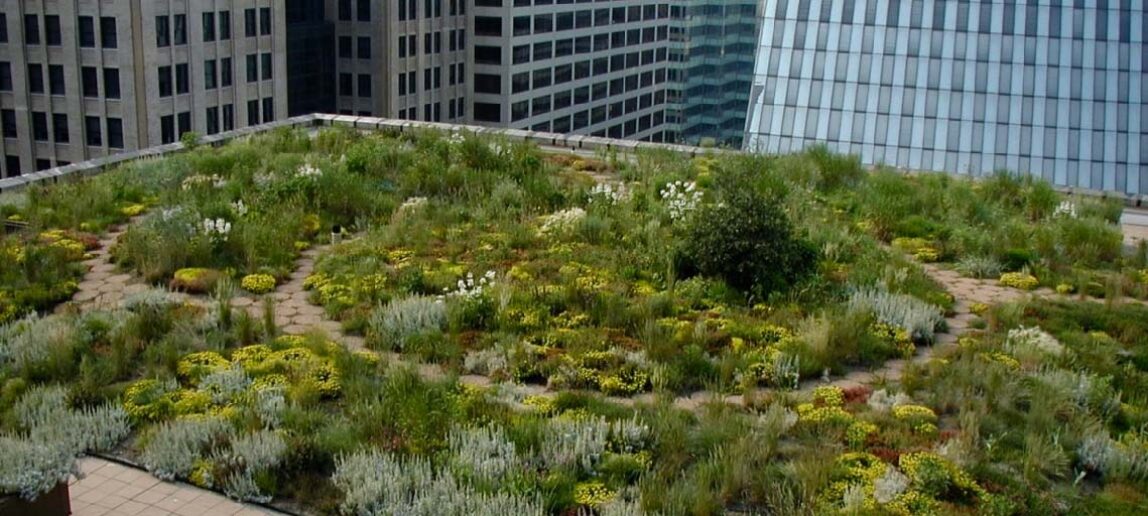Book penned in part by landscape architecture prof reveals critical benefits of “green” roofs
“Green” roof designs that include principles of native landscapes can help reduce climate change and make cities more sustainable, said Bruce Dvorak, Texas A&M associate professor of landscape architecture, in a 2021 book that earned two honors from the American Society of Landscape Architects.
The book, “Ecoregional Green Roofs: Theory and Application in the Western USA and Canada,” which earned an ASLA Professional Research Honor Award and a spot in its Best Books List of 2021, was authored by Dvorak and eight contributors.
A “green” roof is a system atop a building covered in plants that reduces energy costs by providing natural insulation. It also lowers what’s called the urban heat island effect by reducing the amount of heat that is absorbed and trapped by standard rooftops.
The authors “make very real some of the bold visions of future green neighborhoods, villages, and cities,” said David Yocca, an ASLA fellow, in the book’s introduction.
“It is a satisfying read that ties together often disparate concepts, uniting ecology, technology, and long-term maintenance and stewardship,” he said. “It makes the case of greater exploration, trials, and research for ecological surfaces in the face of a rapidly changing climate and substantial investment in the renewal of our cities over the next 50 years and beyond.”
In the book, Dvorak and his co-contributors discuss theory and an overview of ecoregions and their implications for green roofs. They also explore “green” roof design concepts, materials, watering and maintenance, wildlife, plant species and lessons learned in 73 case studies. They conclude with an overview of “green” roofs and a future outlook.
As part of the book’s research, Dvorak visited more than 140 green roofs, 26 natural sites, and 14 national parks.
Dvorak, who helped design and manage some of the U.S.’ first ecological green roofs, one atop Chicago City Hall, and another at the Windy City’s Peggy Notebaert Nature Museum, teaches graduate and undergraduate landscape architecture classes at Texas A&M. His academic interests include sustainable design, planning, and construction.
In 2018, Dvorak and Ahmed Ali, professor of architecture, teamed to create a “green” wall on a side of building B of the Langford Architecture Center.
The wall, made of sheet metal byproducts, includes plant modules individually irrigated by an automatic water-conserving drip system on a steel frame.


